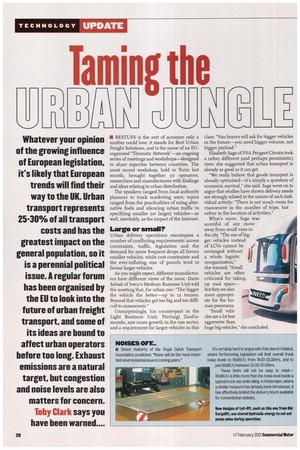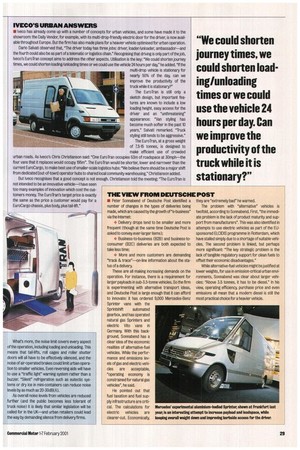NOISES OFF..
Page 30

Page 31

If you've noticed an error in this article please click here to report it so we can fix it.
Simon Hulberts of the Royal Dutch Transport Association predicted: "Noise will be the most important environmental issue in coming years!' It's certainly hard to argue with that view in Holland, where forthcoming legislation will limit overall truck noise levels to 65dB(A) from 19.00-23.00hrs, and to just 60dB(A) between 23.00-07.00hrs.
These limits will not be easy to meet60dB(A) is little more than tho nose level inside a typical truck cab while idling. In Rotterdam, where a similar measure has already been introduced, it has effectively limited the delivery hours available for conventional vehicles. What's more, the noise limit covers every aspect of the operation, including loading and unloading. This means that tail-lifts, roll cages and roller shutter doors will all have to be effectively silenced, and the noise of air-operated brakes could limit urban operation to smaller vehicles. Even reversing aids will have to use a "traffic light" warning system rather than a buzzer. 'Silent" refrigeration such as eutectic systems or dry ice in mini-containers can reduce noise levels by as much as 20-30dB(A).
As overall noise levels from vehicles are reduced further (and the public becomes less tolerant of truck noise) it is likely that similar legislation will be called for in the UK—and urban retailers could lead the way by demanding silence from delivery firms.
































































































